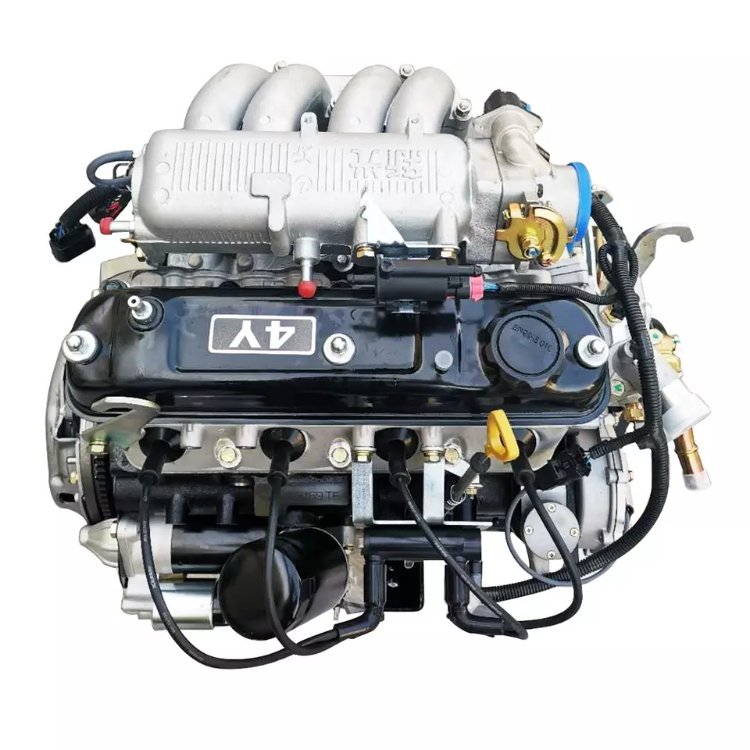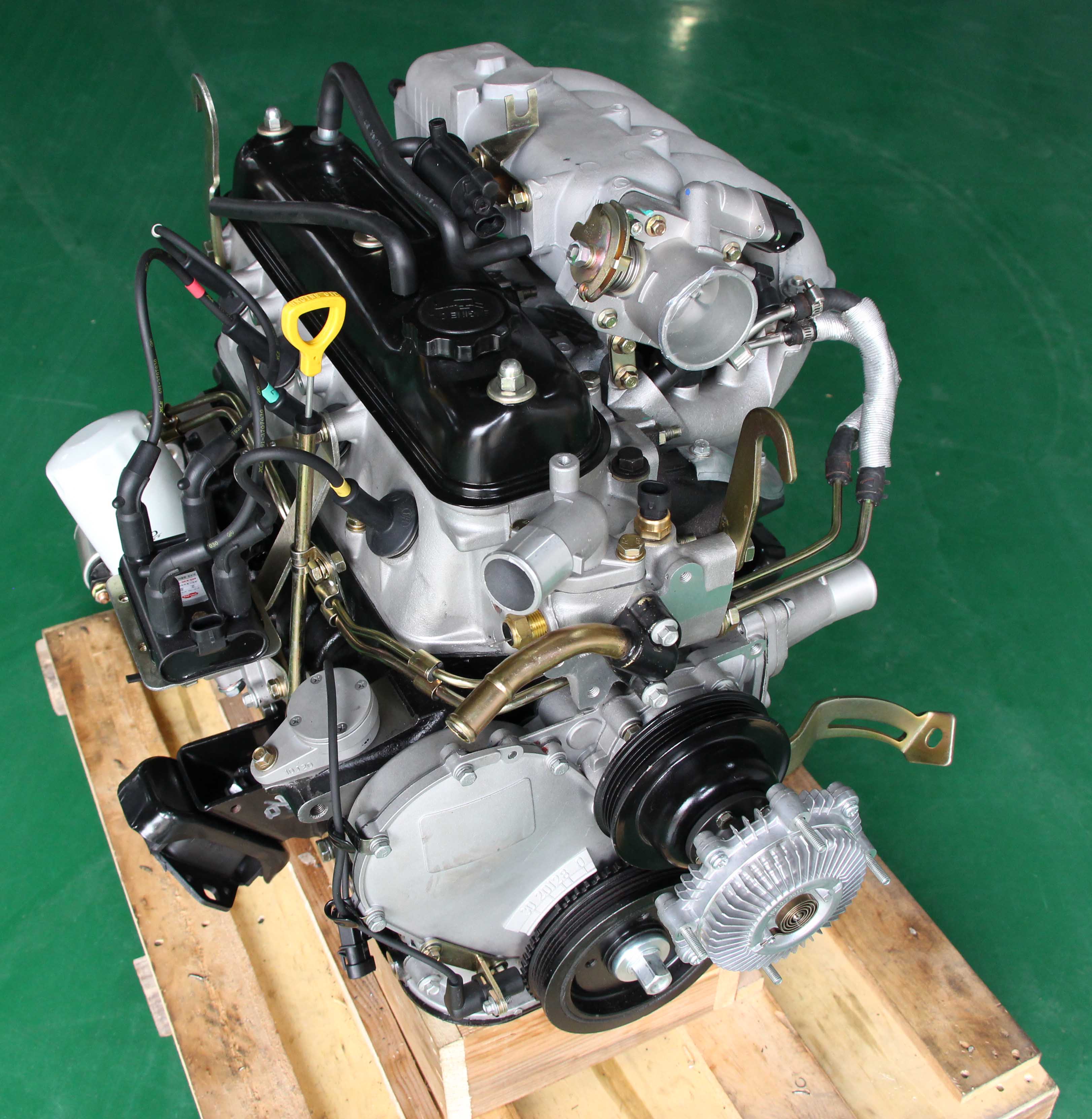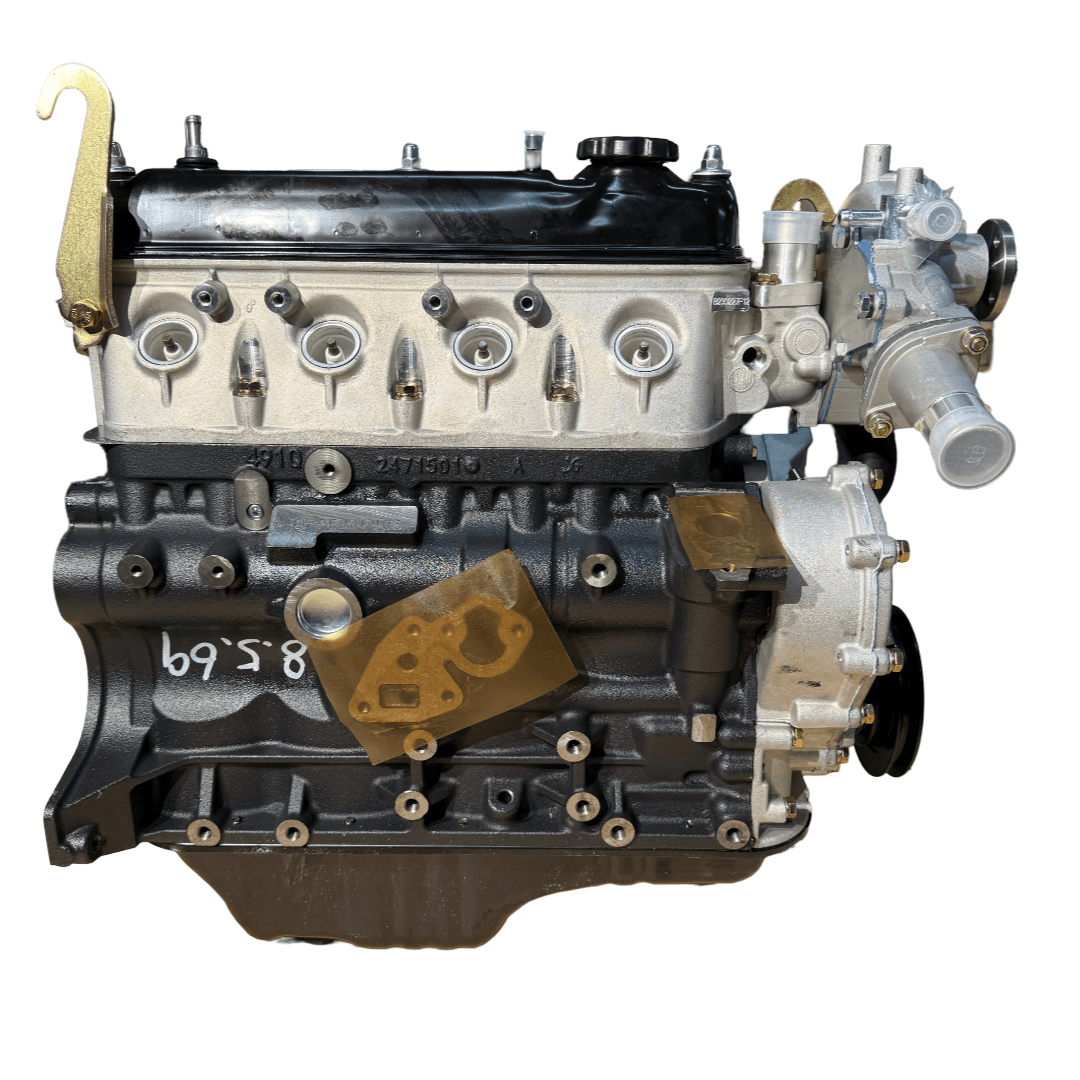The Best Maintenance Tips for Maximizing the Lifespan of Your 4Y Engine
The Best Maintenance Tips for Maximizing the Lifespan of Your 4Y Engine
Blog Article
Discovering the Different Kinds Of Engine: Which One Fits Your Needs?
In the mission to establish one of the most ideal engine kind for your specific demands, it is critical to evaluate the distinct characteristics and benefits of each option offered. Inner burning engines remain to control as a result of their integrity, while electrical engines are getting grip for their sustainability. Crossbreed engines use a functional concession, and diesel engines stand out for their power sought after applications. In addition, different gas engines existing ingenious services, albeit with certain restrictions. Comprehending your top priorities will certainly be critical in this decision-making process, resulting in an exploration of aspects that might affect your option.

Interior Combustion Engines
Inner burning engines (ICEs) are the backbone of modern transport, powering a large array of lorries from automobiles to aircrafts. These engines operate on the concept of transforming fuel into mechanical energy with a collection of regulated explosions within a burning chamber. One of the most usual kinds of ICEs include fuel engines, diesel engines, and rotary engines, each created to meet details performance and performance needs.
Fuel engines commonly use trigger ignition, while diesel engines count on compression ignition, resulting in distinctive differences in gas effectiveness and power result (4y engine). Rotary engines, or Wankel engines, use a compact style and smooth procedure, however are much less typically made use of in mainstream applications
ICEs have gone through substantial developments in modern technology, including the intro of turbocharging and gas injection systems, which improve general performance and performance. In spite of their performance improvements, ICEs deal with boosting analysis due to their environmental influence, particularly concerning greenhouse gas discharges. As the auto industry evolves, the future of ICEs stays a topic of argument, balancing efficiency, performance, and ecological factors to consider. However, they proceed to play a crucial role in worldwide transportation facilities.
Electric Engines
As issues about environmental sustainability and fossil fuel dependence expand, electric engines have actually emerged as an engaging option to internal combustion engines. These engines utilize electric motors powered by batteries or gas cells, supplying a cleaner and a lot more effective means of propulsion.
Among the key benefits of electric engines is their reduced exhausts. Unlike standard engines that burn fossil gas, electric engines produce zero tailpipe exhausts, substantially reducing air contamination and adding to enhanced public health. In addition, the effectiveness of electrical motors usually exceeds that of internal combustion engines, converting a better proportion of power from the power source right into functional power for movement.
Electric engines are additionally significant for their quiet procedure, making them perfect for city atmospheres. 4y engine. The simplicity of their layout leads to less moving components, which can lead to minimized maintenance costs and boosted reliability gradually
However, difficulties continue to be, including battery manufacturing impacts, charging facilities, and array limitations. Regardless of these hurdles, the expanding financial investment in electrical car technology and renewable energy resources factors toward an appealing future for electrical engines, placed to play a vital duty in the transition toward lasting transportation.
Crossbreed Engines
Mixing the benefits of both electric and conventional interior burning engines, hybrid engines stand for a versatile service in the mission for effective and lasting transport. These engines combine a gas or diesel motor with an electrical motor, permitting boosted fuel performance and reduced discharges compared to traditional automobiles.
Crossbreed engines run in numerous settings, utilizing the electrical motor for low-speed driving and the internal burning engine for greater rates or when even more power is required. This vibrant operation not just enhances fuel economic situation yet additionally adds to a smoother driving experience. Regenerative stopping is an additional vital attribute, recording power normally shed throughout braking and redirecting it to reenergize the battery.

As consumers progressively prioritize eco-friendliness, crossbreed engines stick out as a useful selection, using an effective balance of performance, performance, and environmental responsibility. This versatility makes them suitable for city commuting and long-distance travel alike.
Diesel Motor
Performance and power are trademarks of diesel motor, which have long been preferred for their toughness and gas economy. These engines operate the concept of compression ignition, where air is compressed to a high temperature level before gas is infused, igniting it without the demand for ignition system. This process makes it possible for diesel engines to attain higher thermal effectiveness compared to gas engines, translating right into better gas gas mileage and lower co2 emissions.
Diesel engines are particularly fit for sturdy applications such as trucks, buses, and industrial machinery, where torque and longevity are paramount. Their design usually consists of stronger components to stand up to the greater stress created during procedure, leading to longer life span and reduced upkeep costs.

Different Gas Engines
While diesel motor have long controlled the landscape of heavy-duty power sources, alternative fuel engines are acquiring grip as sensible choices for a more lasting future. These engines make use of a range of fuels, such as pressed gas (CNG), propane, hydrogen, and ethanol, aiming to lower greenhouse gas discharges and reliance on nonrenewable fuel sources.
One substantial advantage of different gas engines is their potential to reduced carbon footprints. For example, CNG engines discharge less pollutants contrasted to conventional diesel motor, making them appropriate for metropolitan transportation systems and fleets seeking to improve air high quality. Ethanol, stemmed from biomass, not only minimizes emissions however additionally supports agricultural economic situations.
Hydrogen fuel cells stand for an advanced growth in this realm, providing zero-emission power via a chemical reaction in between hydrogen and oxygen. Nevertheless, obstacles such as infrastructure advancement and manufacturing costs stay barriers to prevalent adoption - 4y engine.
Final Thought
Interior combustion have a peek at this site engines provide dependability, while electric engines prioritize sustainability and reduced maintenance. Crossbreed engines incorporate the advantages of both, enhancing efficiency, whereas diesel engines provide superior power and torque for heavy-duty applications.
Crossbreed engines supply a flexible compromise, and diesel engines stand learn the facts here now out for their power in demanding applications. The most usual kinds of ICEs include gasoline engines, diesel engines, and rotating engines, each made to fulfill certain performance and performance demands.
Unlike conventional engines that burn fossil gas, electrical engines generate absolutely no tailpipe discharges, considerably lowering air contamination and contributing to improved public wellness.Hybrid engines run in several settings, using the electric motor for low-speed driving and the inner combustion engine for greater speeds or when even more power is needed. Hybrid engines incorporate the advantages of both, enhancing effectiveness, whereas diesel engines supply exceptional power and torque for heavy-duty applications.
Report this page